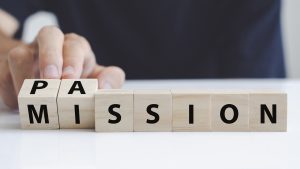I write sometimes in these columns about thinking biases that can affect our decision making. Today I want to talk about a way of thinking that can undermine our resilience during hardship, as well as our ability to flourish and succeed.
Catastrophes happen in life. Natural disasters, tragic accidents, terrible illnesses, heart-rending betrayals, economic calamities, war, famine… Human history has been filled with these, and most of us have been at least touched by something catastrophic.
But a catastrophe is not usually the most likely scenario – if they were common, we wouldn’t think of them as catastrophes; they’d just be the kind of normal troubles we expect in life. There can be disappointments, hardships, struggles, and losses that hurt badly, requiring us to step up to challenges we would rather not have to step up to. These are not uncommon.
But a true catastrophe is rarely likely. When we expect catastrophe as a likely scenario, that expectation creates its own troubles, and they can run deep.
Yet our current media and political culture thrives on creating and maintaining an atmosphere of impending catastrophe. This is true across the political spectrum, and throughout much of the common space we share through internet, TV, movies, print media… The conversation that is mediated by every kind of media is filled with visions of catastrophe.
The very way that these threats are framed do not encourage us to think clearly, investigate deeply, or to search for practical solutions.
The way they are framed encourages us to feel terrified, enraged, and helpless. And this can undermine our capacity for success, happiness and well-being across every aspect of our lives.
This orientation is guaranteed to activate our primitive reactions of fight, flight, and freeze – reactions that are designed to give us a last-ditch possibility of surviving the mortal attack of a predator.
While these parts of our nervous system serve an essential survival function when needed, they are very rarely actually needed. They also undermine our capacity to think clearly, our desire and ability to seek understanding, empathy, and compassion for others, and our internal sense of well-being and basic trust.
Catastrophic thinking can undermine resilience, and increase our risk for anxiety, depression, and PTSD. It can also undermine our capacity for success: those who tend to not engage in catastrophic thinking also tend to be the ones who excel.
Read More
 Where do we find the energy to achieve big, long-term goals?
Where do we find the energy to achieve big, long-term goals?
Recent Comments